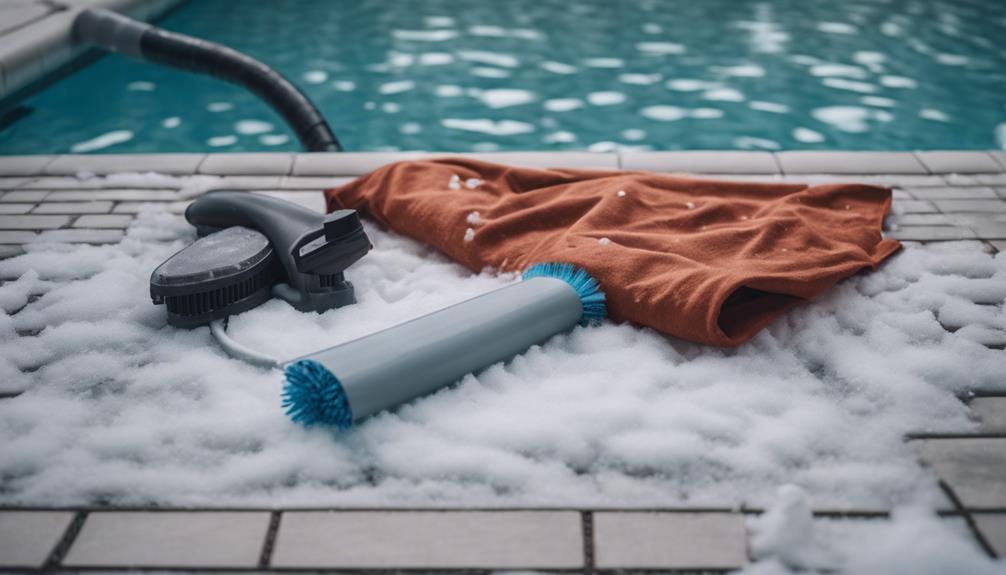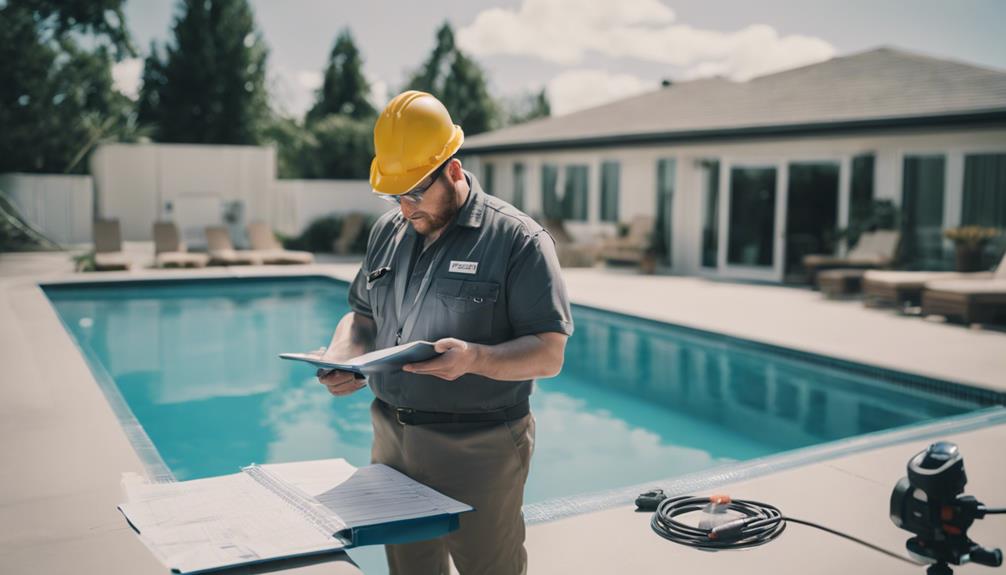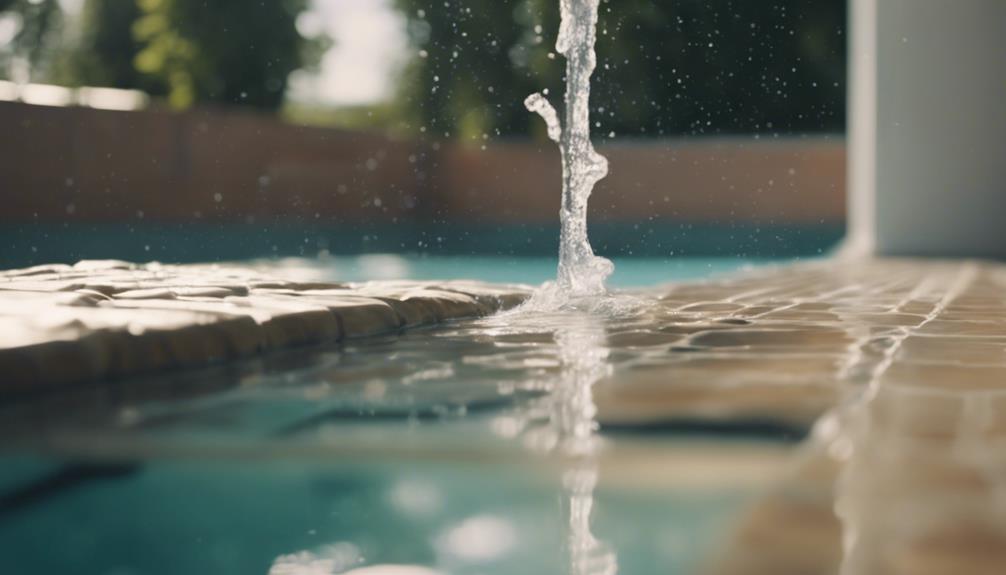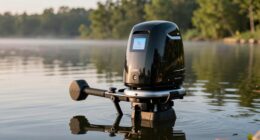To winterize your pool, start with thorough cleaning and maintenance to remove leaves, dirt, and debris. Take down accessories like ladders and diving boards for safe storage. Maintain proper chemical balance by adjusting pH and keeping calcium hardness and alkalinity levels in check. Safely drain your pool by removing water from the pump and reducing levels. Shut down equipment carefully, turning off pumps and covering the pool securely. These steps will protect your pool during the winter months and guarantee an easy reopening in the spring.
Key Takeaways
- Thoroughly clean pool to remove leaves and debris.
- Safely store accessories like ladders and diving boards.
- Balance pool chemicals for proper water maintenance.
- Drain pool water carefully to prevent freezing.
- Shut down equipment and cover pool securely.
Pool Cleaning and Maintenance
To maintain your pool in peak condition throughout the winter season, thorough cleaning and maintenance are vital steps to take. Ensuring your pool is free of leaves, dirt, and debris is essential in preventing potential damage during the colder months. Cleaning the skimmer and pump basket thoroughly will help smooth the pool opening process next spring.
Removing Accessories for Winter
Secure the safe storage of pool accessories to protect them from potential winter damage.
Before winter sets in, it is vital to remove detachable ladders, slides, and diving boards from the pool area. Snow and ice can cause harm to these accessories if left in place.
Proper storage not only guarantees the safety of the pool structures but also prolongs their lifespan.
By storing these items away securely, you prevent any possible damages that may occur during the harsh winter months.
Taking the time to remove and store pool accessories correctly will help maintain the overall integrity of your pool area and make certain that everything is in good condition when it's time to reopen the pool in the spring.
Balancing Pool Chemicals Properly
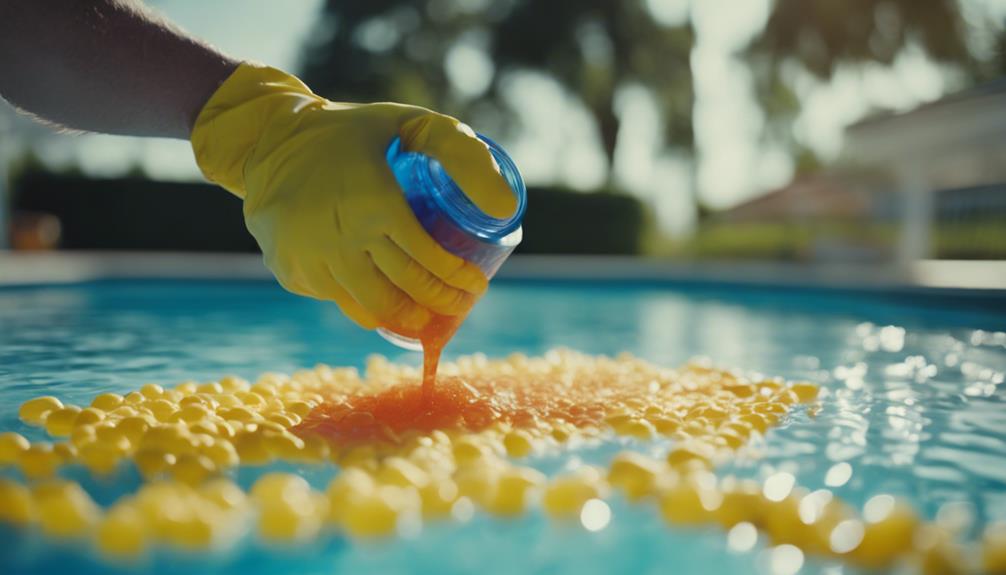
Upon safeguarding the safe storage of pool accessories for winter, the next critical step is to uphold proper balance of the pool chemicals. This is essential to guarantee the water remains clean and safe during the off-season.
To achieve this, follow these key guidelines:
- Adjust the pH level to 7.2-7.8 to uphold water balance.
- Keep calcium hardness within the range of 180-220ppm for proper water mineral content.
- Maintain alkalinity between 80-100 to prevent pH fluctuations and secure water stability.
Draining Your Pool Safely
Proper drainage of your pool is an important step in preparing it for the winter season. To drain your pool safely, begin by removing water from the pump and reducing the water level below the skimmer to prevent freezing in the pipes.
This precaution helps protect your pool from potential winter damage and avoids any pipe damage due to freezing. It is advisable to maintain the water level at 12-18 inches below the skimmer to guarantee proper drainage.
Shutting Down Equipment and Covering Pool
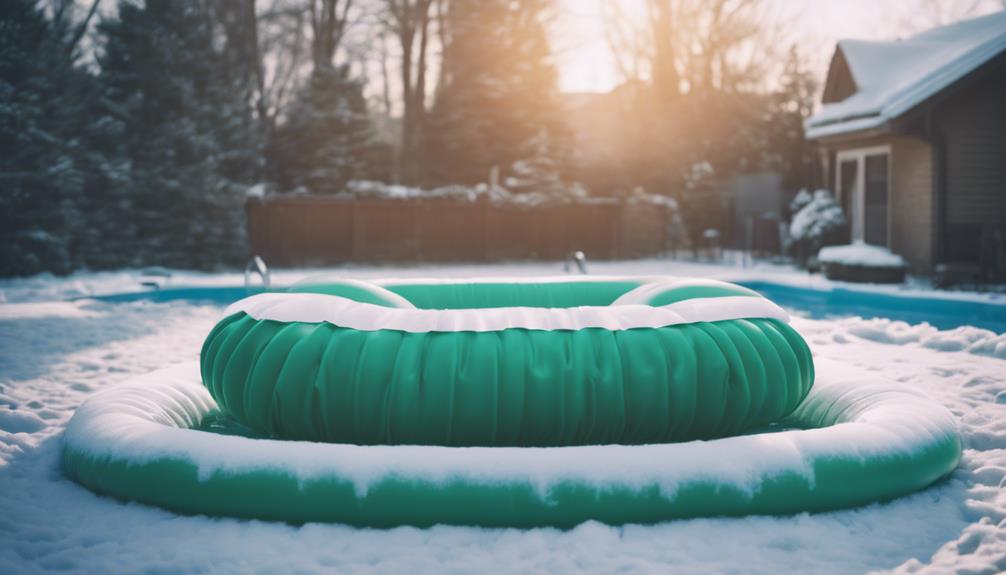
To prepare your pool for the winter season, it is important to properly shut down equipment and securely cover the pool.
- Turn Off Equipment:
- Shut down the pump to avoid damage.
- Disable timers to prevent unintended activation.
- Confirm all equipment is safely turned off for winter.
- Selecting and Securing a Pool Cover:
- Choose a cover that fits your pool's size and shape.
- Verify compatibility with the pool manufacturer.
- Seal the cover edges tightly to prevent debris entry.
- Protecting Your Pool:
- Safeguard the pool from dirt and debris during winter.
- Make sure the pool cover is securely fastened for maximum protection.
- Covering the pool is essential in maintaining its condition during the off-season.
Frequently Asked Questions
How Often Should I Check the Pool Cover During the Winter?
Regularly inspect your pool cover during the winter to maintain its secure and free from tears or damage. Checking it every 2-4 weeks is recommended to address any issues promptly and maintain proper protection for your pool.
Can I Use a Regular Tarp Instead of a Pool Cover?
While a regular tarp may seem cost-effective for pool coverage, it lacks the specific design and durability of a pool cover. Pool covers offer tailored protection, fit, and safety features essential for safeguarding your pool during winter.
Should I Remove the Pool Cover After Heavy Snowfall?
After heavy snowfall, it is advisable to remove the pool cover to prevent damage. Excessive snow accumulation can strain the cover and pool structure. Removing the cover also allows for proper inspection and maintenance of the pool.
Is It Necessary to Cover the Pool if It Doesn't Freeze in Winter?
Covering your pool during winter is crucial even if it doesn't freeze. A pool cover helps prevent debris buildup, maintains water quality, and protects pool equipment. Properly securing the cover guarantees a clean, well-preserved pool.
Can I Leave the Pool Pump Running During Winterization?
During winterization, it is not advisable to leave the pool pump running. Turning off the pump prevents potential damage due to freezing or low water levels. Properly shutting down the equipment is essential to safeguard your pool for the winter season.
Conclusion
To sum up, ensuring proper winterization of your pool is paramount to safeguarding its longevity and structural integrity during the colder months.
By meticulously following the outlined steps for cleaning, removing accessories, balancing chemicals, draining water, shutting off equipment, and covering the pool, you can prevent costly damages and extend the lifespan of your pool.
Taking these measures will make your pool invincible against the harsh winter elements, ensuring a smooth reopening in the spring.

